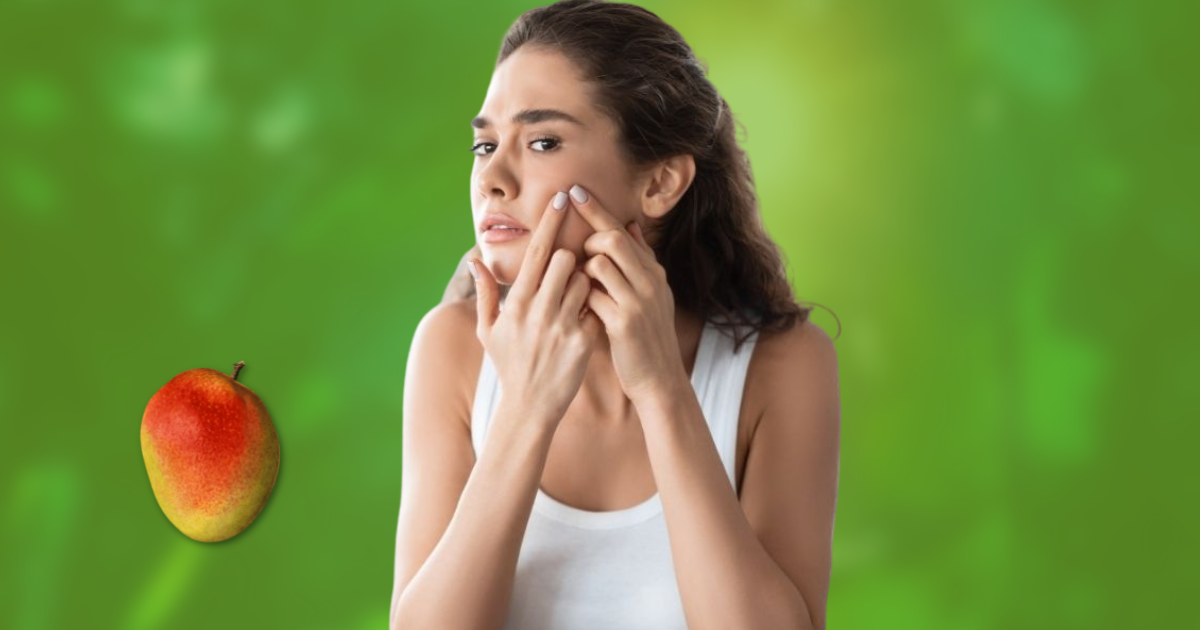Yes, Mangoes do causes acne but it's a half-truth. In fact, in some ways, mangoes are good for the skin. Mangoes are ubiquitous in the Summer diet. It's impossible to resist mango ice cream, shakes and fruit as it is. While most of us eat the fruit to our hearts' content throughout the season, some unfortunate people must avoid it due to skin problems such as acne. Mango indeed causes acne but it is just the half truth. Mangoes are known to be beneficial to skin health in some ways. We know that now you are confused about whether should eat mangoes or not. Read to know the answer!
Reasons why Mango causes Acne?
Glycemic Index
Remember how we mentioned earlier about satisfying our sweet tooth with mangoes? This sweetness is not always inexpensive. You pay the price for acne and skin breakouts on your face. Mangoes are high in carbohydrates. They fall somewhere between 51 and 56 on the glycemic index scale. Mangoes have a high glycemic index, which means they cause an increase in blood sugar levels. As a result, the insulin level rises. The sebaceous glands produce oil on the skin when there is an abundance of insulin in the blood. Because oil skin easily traps dust on your face, clogging the pores, it is one of the risk factors for acne production on the face. Acne-causing bacteria can be found in grime and oil.
Mast Cell Flare
We can get a better understanding of why this happens if we look at Mast Cell Activation Disorder. Mast cells are cells that store certain inflammatory hormones that are released to promote inflammation when we are sick or injured. However, even if you do not have Mast Cell Activation Disorder, you may have sensitive mast cells or other issues such as histamine intolerance in some people. People with these disorders are extremely sensitive to citric acid, which is found in mangos. When these sensitivities are triggered by citric acid, inflammation in the body and skin occurs, promoting acne.
Phytic Acid
Phytic acid is becoming more popular in skincare routines. Some people use it to make their skin look brighter. But keep in mind that it is still acidic. Any excess of any acid, whether taken orally or topically applied to the skin, is harmful. If you're a big fan of mangoes and have overindulged to satisfy your cravings, you've probably increased the level of phytic acid in your blood. Increased phytic acid in our bloodstream has the disadvantage of impairing mineral absorption. This means that vital nutrients will be depleted from your skin. Mangoes, though it's a long shot, contribute to dull, acne-prone skin.
Toxins On The Peel
Have you ever purchased fresh fruit from a farmer's market? If you said yes, you probably noticed them spraying something on the fruits. All we could surmise was that the individual was spraying water to keep the fruit clean. In most cases, however, that spray bottle contains non-organic pesticides. These sprays are used to kill insects. Before eating mangoes, we occasionally don't wash them thoroughly, and in the worst cases, we don't wash them at all. Toxins are absorbed into our bloodstream when they enter our stomach. This toxin enters our bodies as food, causing severe skin breakouts and unusual pimples on our faces.
Artificial Fertilizers
It's hard to believe that the king of all fruits could be your skin's worst enemy. Nothing is natural these days, in addition to the other four reasons. Mangoes, which you've been craving for a year, are no longer grown naturally. To grow fruits, many artificial fertilisers and sprays are now used.
But if mangoes are good for the skin so why do people get acne and pimples after eating mangoes?
Mango can cause acne in people who have insulin resistance because it has a high glycemic index, which means it raises blood sugar levels. Not only mangoes, but any food with a high glycemic index can cause insulin spikes in our bodies because it has a direct effect on our oil glands by increasing sebum secretion, resulting in acne flare-ups during mango season.
But, we all know that mangoes are full of essential nutrients that aid in skin health. Those who are already struggling with acne or pimples may gain from it as the fruits help to clear clogged pores. We list down some of the skin benefits that mangoes offer to the skin.
Here are some of the benefits of Mangoes to the skin
- Mangoes are rich in antioxidants that help to flush out all the harmful toxins from the inner layer of the skin. It helps in keeping the skin free from bacteria and skin problems.
- Eating mangoes helps reduce signs of ageing. Research states that vitamin A which is high content present in mango helps to regulate cellular differentiation by increasing epidermal proliferation to counteract photoaging.
- Mangoes support the skin's collagen production. Vitamin C, flavonoids, mangiferin and carotenoids present in mangoes could lead to improvement in collagen bundles.
- Mangoes also protect from Sun's UV rays. The research reveals that carotenoids and carotene present in mango might provide photoprotection through a direct chemical reaction with UV-induced reactive oxygen species and interfere with UV-induces Gene expression.
Conclusion
Yes, Mangoes do cause acne but, since mango is otherwise beneficial for the skin with its range of vitamins & minerals, it is best to keep it in your diet but limit its consumption. Those of you struggling with high insulin resistance can shun other high glycemic goods like chocolates and candies instead.



